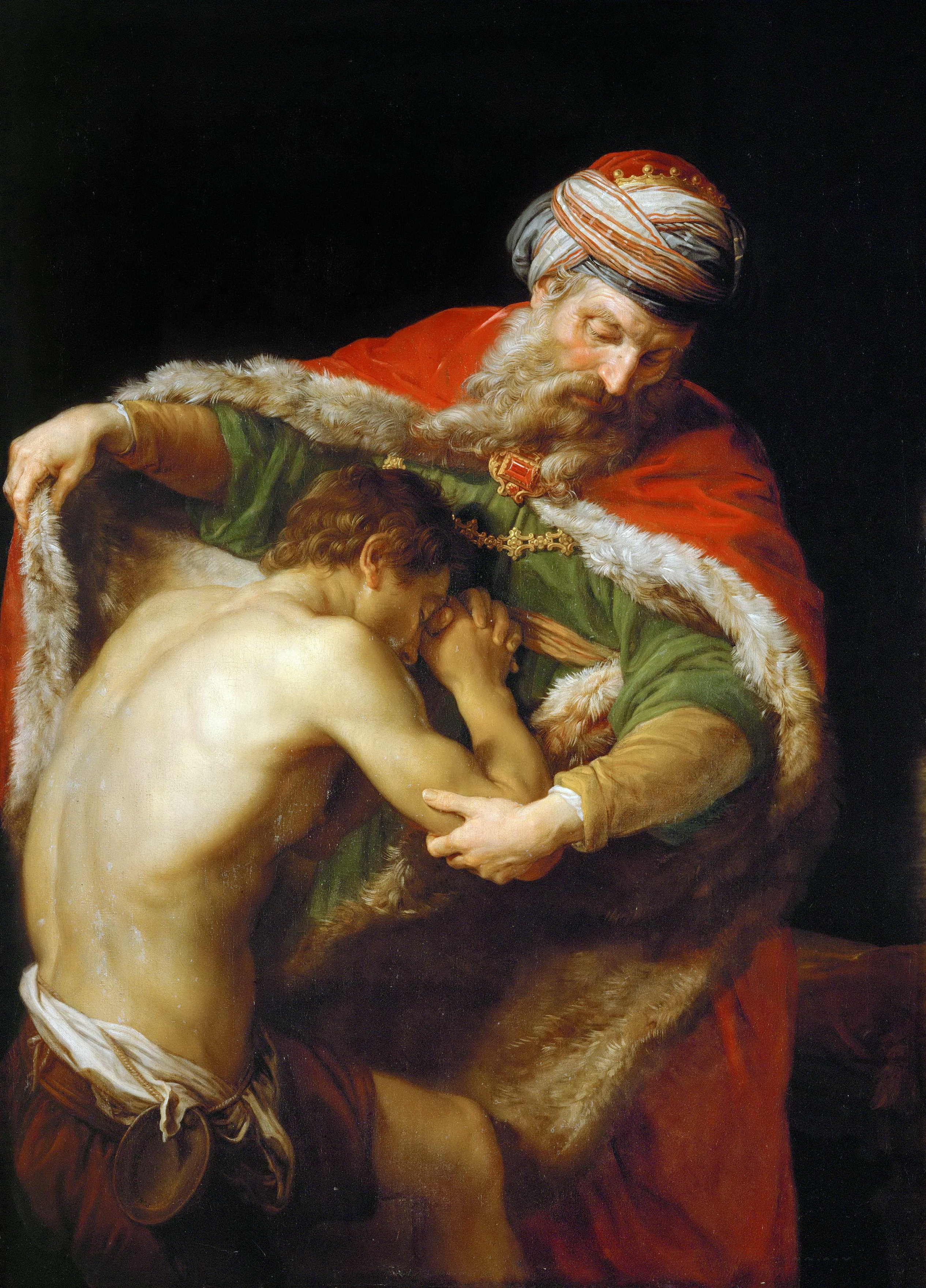
Parable of the Prodigal Son
The Parable of the Prodigal Son (also known as the parable of the Two Brothers, Lost Son, Loving Father, or of the Forgiving Father)[1][2] is one of the parables of Jesus in the Bible, appearing in Luke 15:11–32.[i] In Luke 15, Jesus is said to tell this story, along with those of a man with 100 sheep and a woman with ten coins, to a group of Pharisees and religious leaders who kept on criticizing him for welcoming and eating with marginalized Jews including tax collectors and other sinners.
Several terms redirect here. For other uses, see The Prodigal Son (disambiguation) and The Return of the Prodigal Son (disambiguation).The Prodigal Son is the third and final parable of a cycle on redemption, following the parables of the Lost Sheep and the Lost Coin. In Revised Common Lectionary and Roman Rite Catholic Lectionary, this parable is read on the fourth Sunday of Lent (in Year C);[3] in the latter it is also included in the long form of the Gospel on the 24th Sunday of Ordinary Time in Year C, along with the preceding two parables of the cycle.[4] In the Eastern Orthodox Church it is read on the Sunday of the Prodigal Son.
Similar parable in Mahayana Buddhism[edit]
A parable of a lost son can also be found in the Mahayana Buddhist Lotus Sutra.[36][37] The two parables share the premise of a father and son being reunited after a time apart, and several scholars have assumed that one version has influenced the other or that both texts share a common origin.[38] However, an influence of the biblical story on the Lotus sutra is very unlikely given the early dating of the stratum of the sutra containing the Buddhist parable.[38]
Both parables document a son who leaves a father. In the Lotus sutra, there is a lapse of decades after which the poor son no longer recognises his wealthy father and is terrified of his father's accumulated power and wealth. When the father sends out some attendants to welcome the son, the son panics. The father then lets the son leave without telling him of their kinship, providing him with a heap of straw to sleep on and employment clearing a pile of dirt.[39]
As the decades pass, the father gradually conditions the son to his company and gets him accustomed to special honors. Close to death, the wealthy man reveals his kinship with a public announcement to the whole community.[36] The sutra applies the story to the human quest for omniscience which is unexpectedly received. In the Buddhist parable, the father symbolises the Buddha, and the son symbolises any human being. Their kinship symbolises that any being has Buddha nature. The concealment of the kinship of the father to his son is regarded as a skillful means (Sanskrit: upāya).[40]